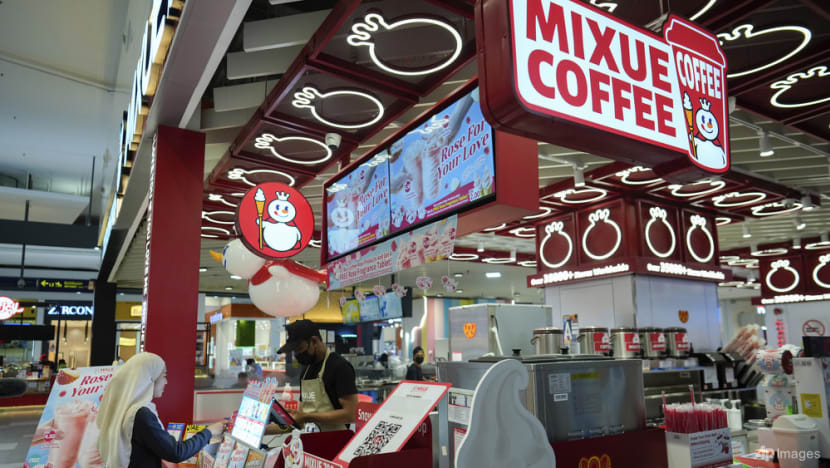Commentary: How Mixue made billions selling US$1 ice cream
Mixue is a fast-growing cash cow, banking on China's shifting labour dynamics to take on the likes of McDonald’s and Starbucks, says Shuli Ren for Bloomberg Opinion.

HONG KONG: One can become a billionaire selling ice cream, lemonade and fruit smoothies – all for less than US$1. Zhang Hongchao and Zhang Hongfu, two brothers who founded China’s largest freshly made drinks chain, are making a fortune by taking advantage of China’s fast-shifting labour dynamics.
Mixue Group’s blockbuster HK$3.5 billion (US$450 million) public listing is a marvel for a difficult food and beverage industry where even the likes of Starbucks and McDonald’s are revamping their operations. With its share price surging, the Zhang brothers are now richer than Starbucks’ founder Howard Schultz.
Fast-growing cash cows are hard to find in this uncertain world. By number of stores, Mixue has become bigger than McDonald’s. It has over 45,000 outlets after more than doubling its locations in just three years.
There’s no cash burn either. In the first nine months of 2024, revenue grew 21 per cent to 18.7 billion yuan (US$2.6 billion), while net profit came in at 3.5 billion yuan, a 42 per cent year-on-year gain.
SELLING AN ENTREPRENEURSHIP DREAM
Behind Mixue’s growth is an army of franchisees. The company barely manages any stores itself. Rather, almost all of its revenue came from selling store supplies, including syrup, milk and fruit, as well as equipment such as refrigerators and ice-cream makers, to its franchises.
Faced with weak job prospects, many Chinese might find Mixue’s business proposition palatable. The initial investment for opening a shop is only about 210,000 yuan.
One doesn’t need much expertise to run a business either. Mixue’s corporate headquarters have standardised everything, including advertising campaigns. For an aspiring entrepreneur, the only trick is spotting a site that can break even quickly.
Mixue is expanding just when China’s labour market is changing shape. Because of automation, even the world’s largest factory can’t provide so many manufacturing jobs. In 2023, wholesale and retail sectors employed 135 million people, 12 million more than manufacturing, according to the latest census.
Many Chinese choose to be self-employed or work for family members, as larger companies lay off people and cut salaries. Ultimately, Mixue is not selling US$1 lemonade, but an entrepreneurship dream.
FIGHTING FOR THE SAME CUSTOMERS
But online complaints are growing louder, with many claiming that Mixue is making money at the expense of franchisees, that the company is shifting operational risks to small business owners.
By now, Mixue’s stores are peppered across China. Even in small towns, one street can have multiple outlets – some only 200m away from each other – competing for the same customers. There’s already a hint of cannibalisation in the company’s financials: In the first nine months of 2024, the latest data available, the average daily gross merchandise value per store fell by 5 per cent to 4,184 yuan.
In its franchise agreements, Mixue doesn’t require newly opened stores to keep a minimum distance from existing ones. Increasingly, for franchisees, it is hard work mixed with financial anxiety.
On average, each store can expect to make 367 orders a day, or every 2 minutes for 12-hour days. But operators dare not slack off. It would take some shops two to three years to break even, much higher than what some company employees suggested, according to local media.
So far, Mixue is opening outlets a lot faster than it closes them, and people are only disgruntled online.
Unfortunately, in a weak economy, small businesses have no power and the platform holds all the cards. But Mixue’s capital market success is exacerbating an economy driven by hyper competition, and portends the burnout that will eventually follow.















